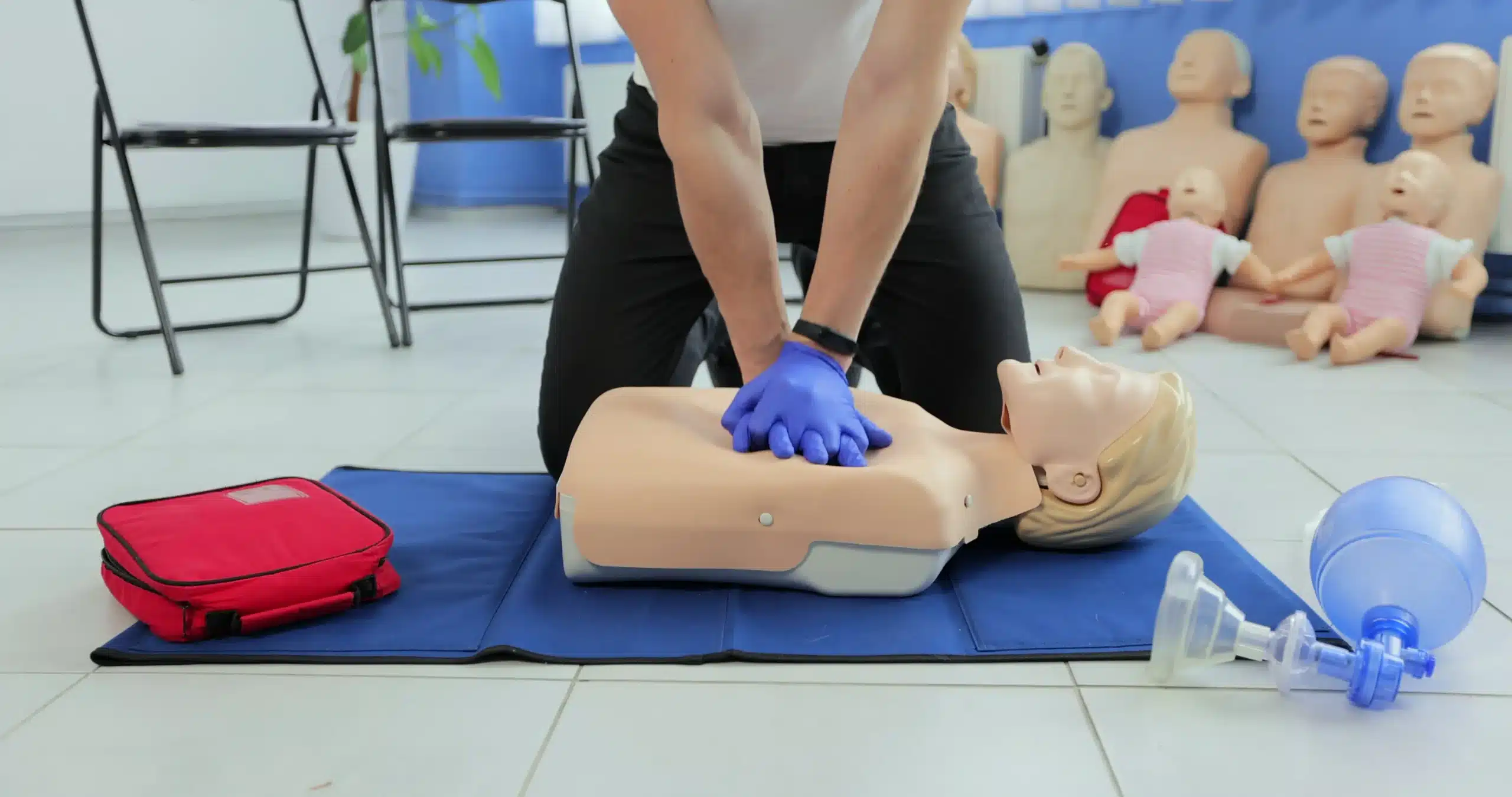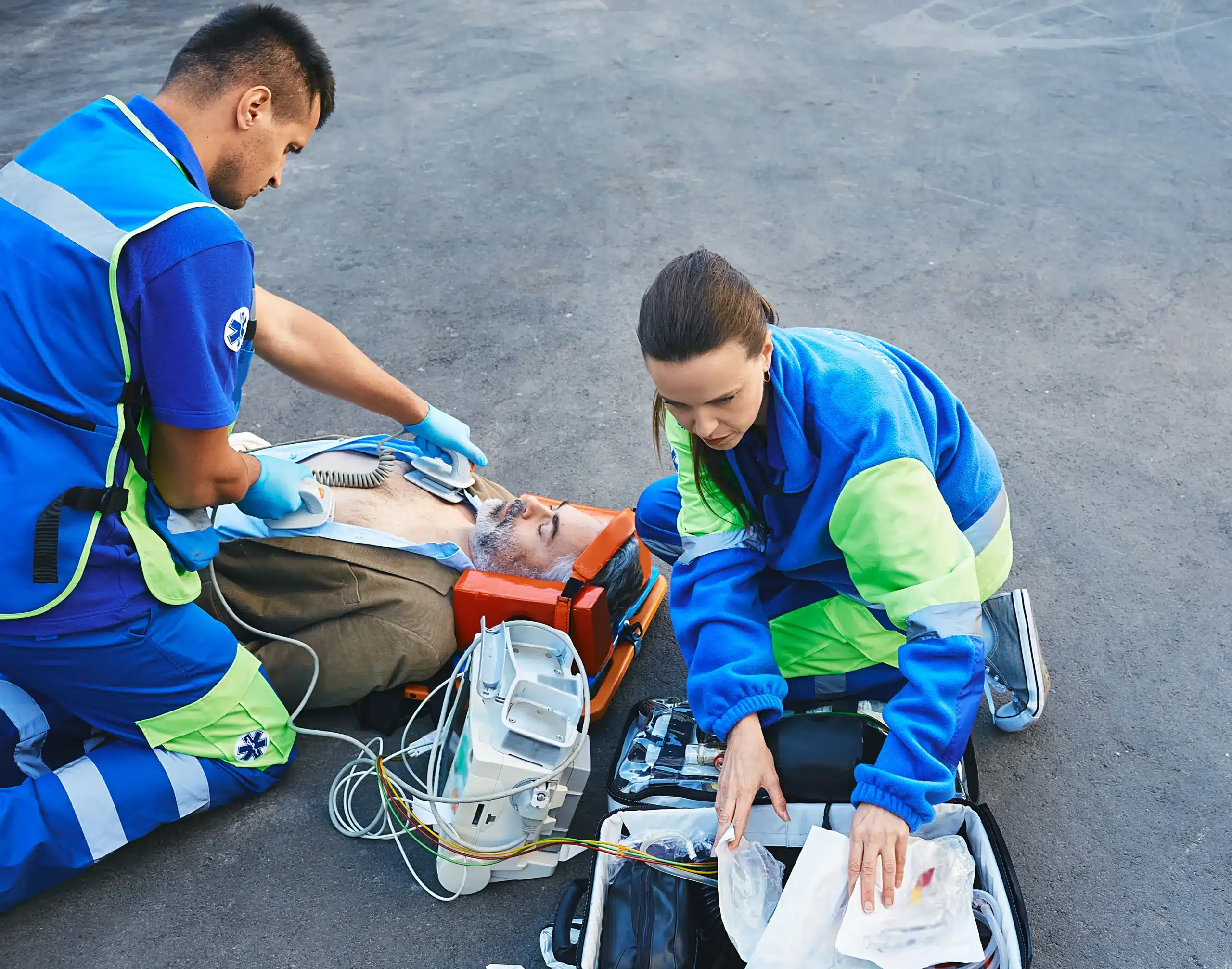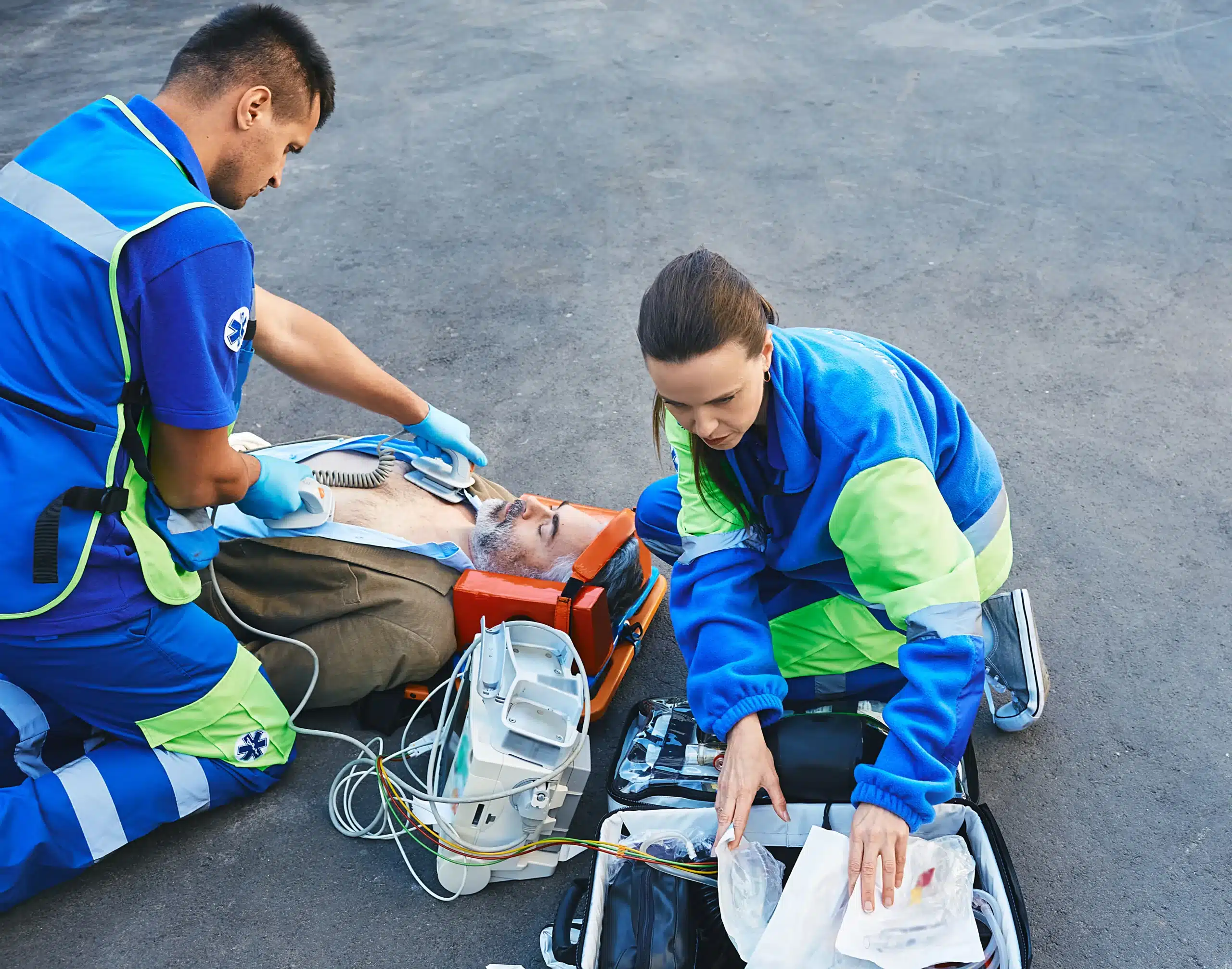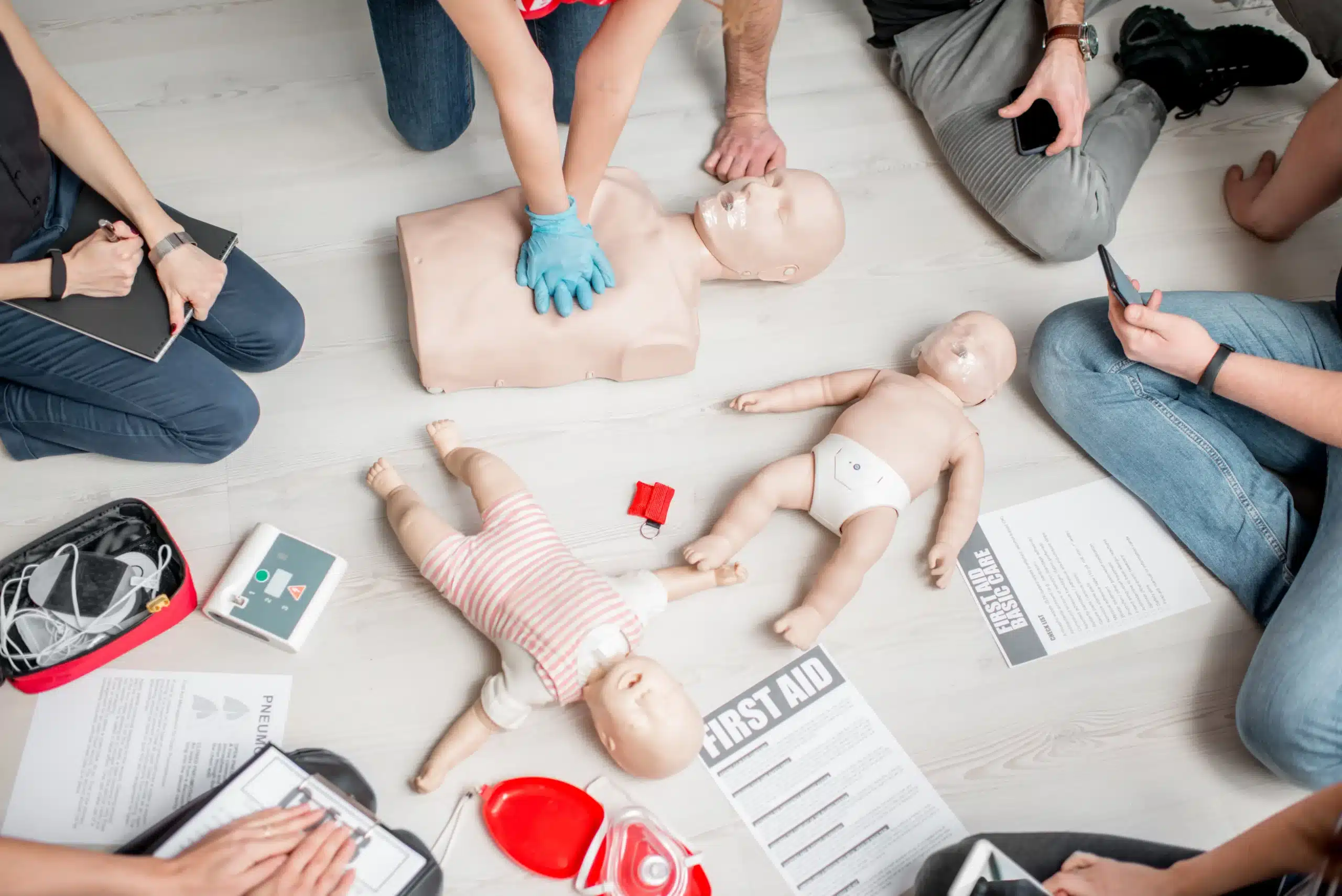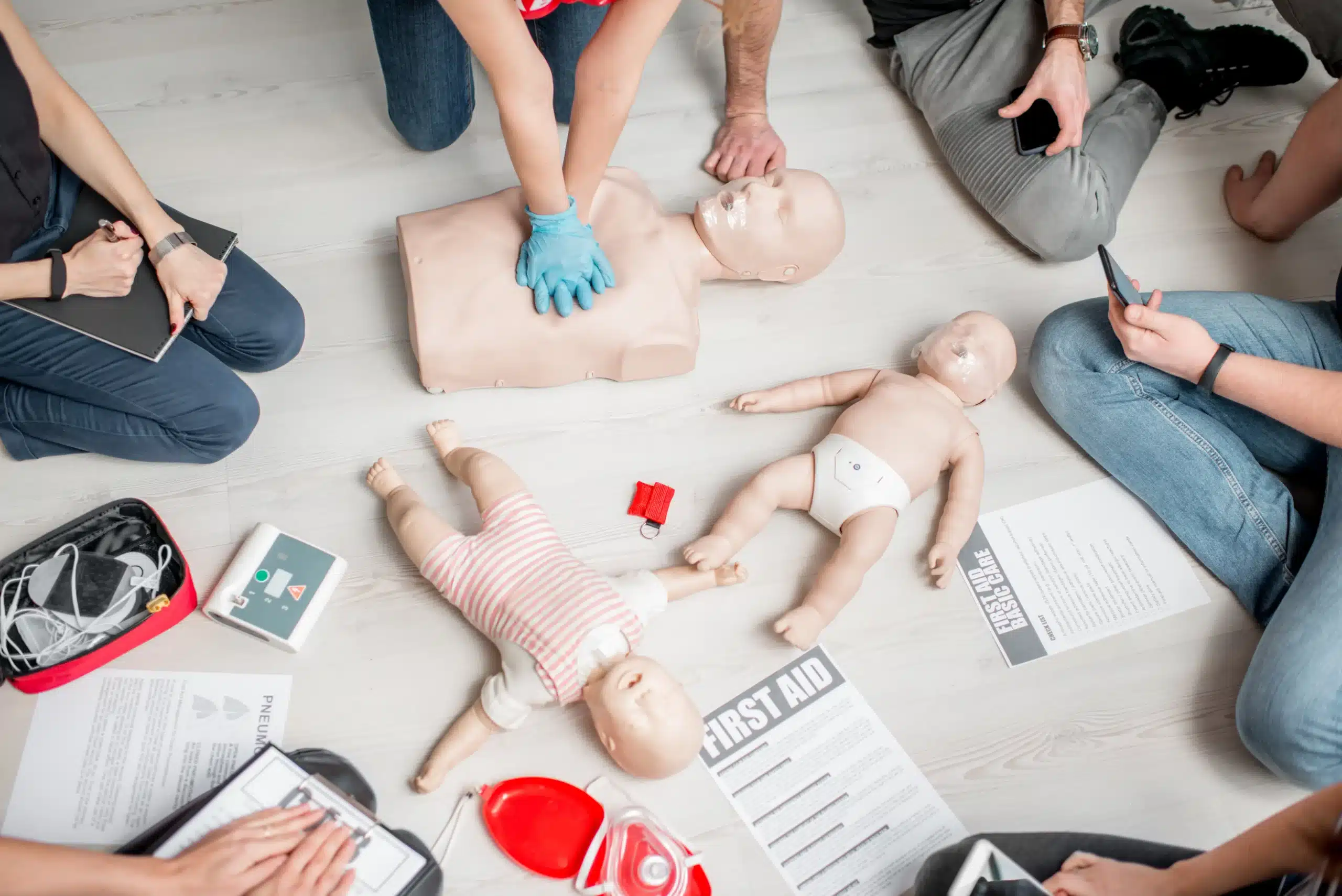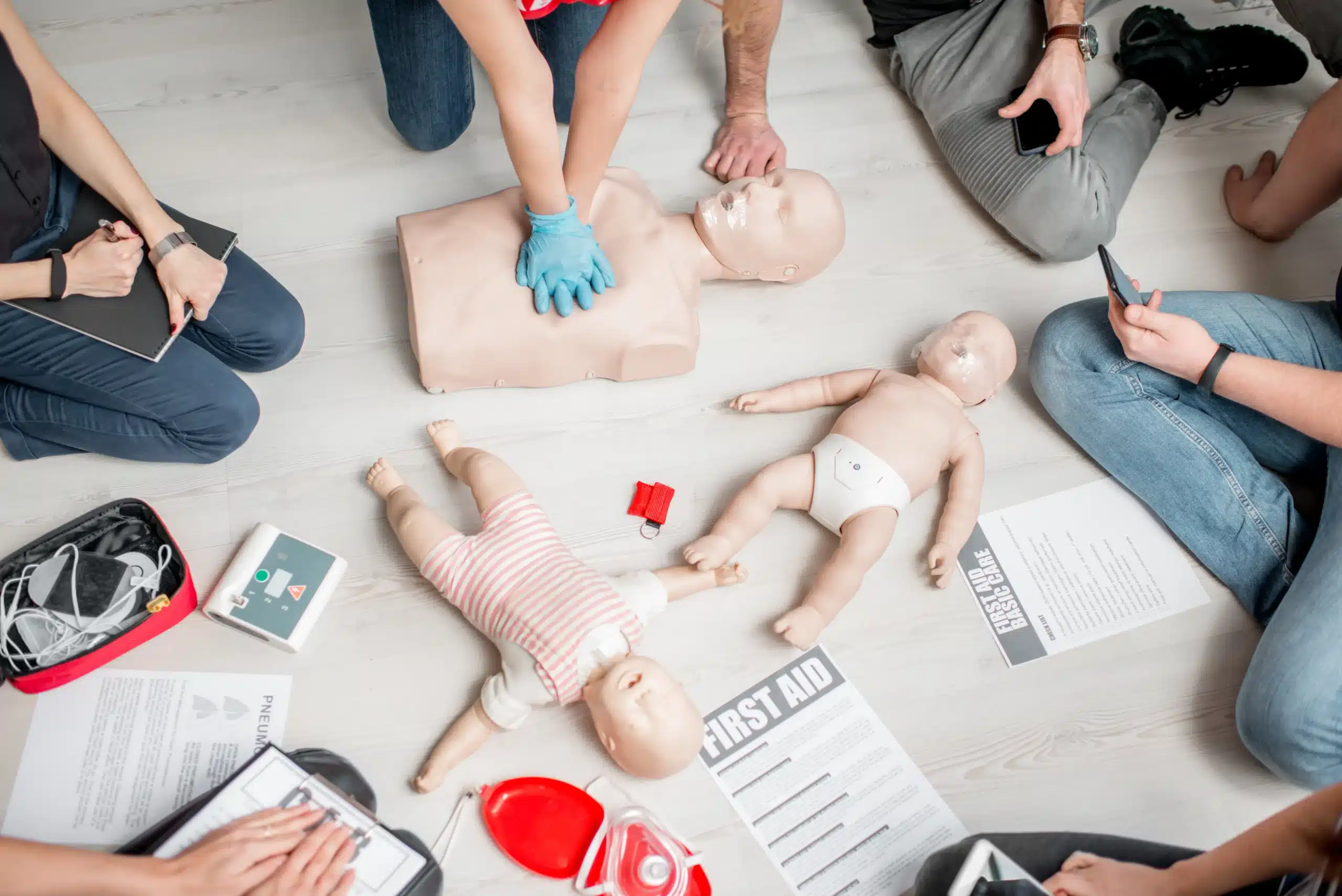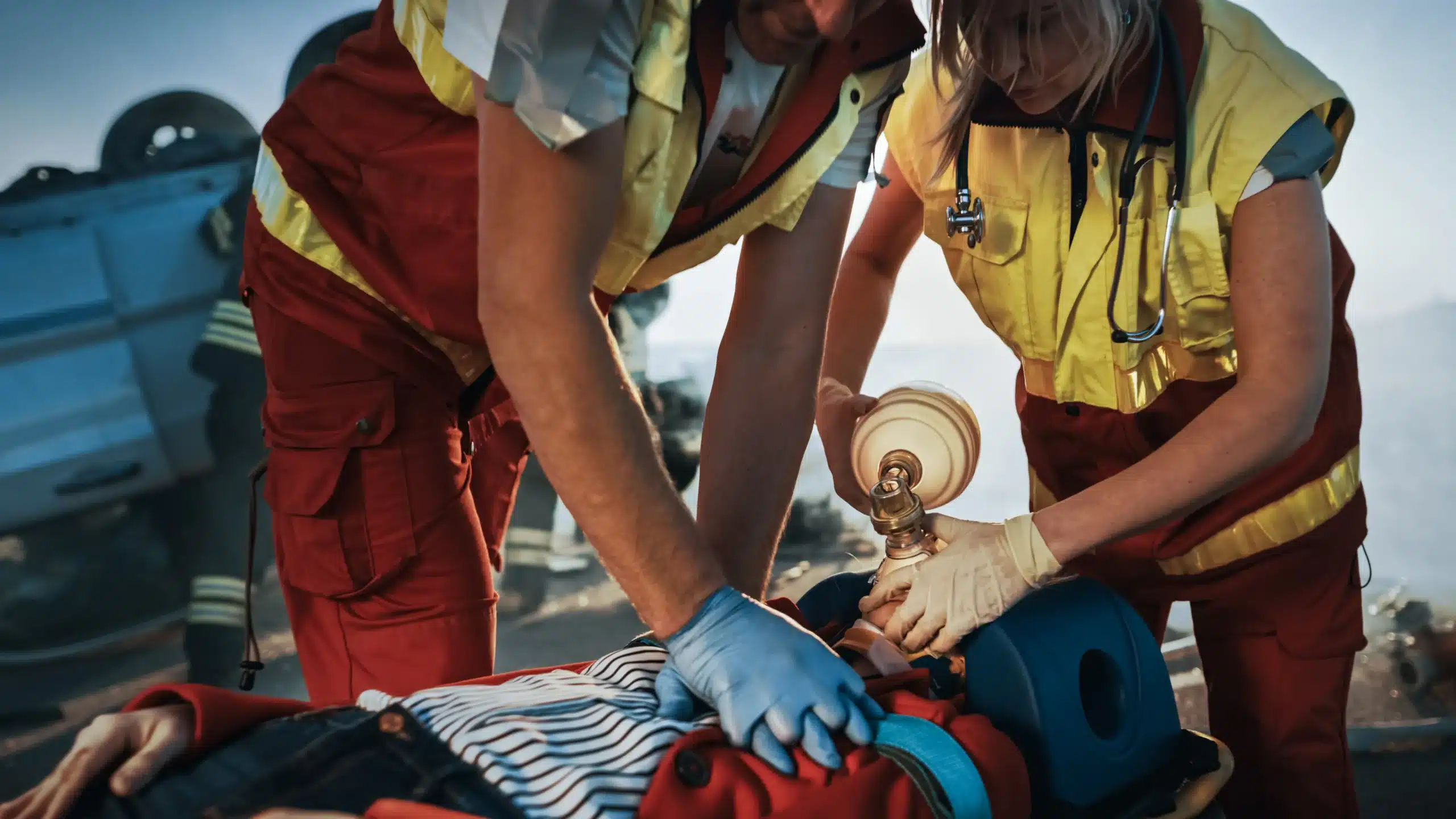Running a successful dental practice in Walnut Creek involves more than just providing excellent dental care. It also means being prepared for any situation, including medical emergencies. While these situations are rare, they can be life-threatening, requiring immediate and effective action. CPR for dentists in Walnut Creek is a critical skill that can make all the difference in these crucial moments. This training equips you and your team to respond confidently to various medical emergencies, from choking incidents to cardiac arrests, stabilizing a patient until EMS arrives. This article will delve into the importance of CPR training for dentists in Walnut Creek, the various certification courses available, and how to implement a robust emergency response plan in your practice.
Key Takeaways
- CPR training is crucial for patient safety: Equipping your dental team with CPR skills allows for immediate response to medical emergencies, potentially saving lives and minimizing complications. This preparedness creates a safer environment for both patients and staff.
- Choose CPR training tailored for dental professionals: Look for courses that offer scenario-based learning for dental emergencies and hands-on practice with dental equipment. Consider instructor qualifications and flexible scheduling options when selecting a provider.
- Establish and maintain CPR protocols in your practice: Develop a comprehensive emergency response plan, conduct regular staff drills, and ensure easy access to well-maintained emergency equipment. Staying current with the latest guidelines and renewing certifications ensures your team is always prepared.
Why Dental Professionals Need CPR Training
As a dental professional, you’re dedicated to patient well-being. But even routine appointments can sometimes take an unexpected turn. A patient might experience a sudden allergic reaction, have a choking incident, or even suffer a cardiac event. In these critical moments, your ability to provide immediate CPR can be the difference between life and death. CPR training empowers you with the skills to respond swiftly and effectively, stabilizing a patient until emergency medical services arrive. This immediate response capability is crucial in a dental setting where seconds can matter. BLS training for dentists provides the foundational skills to perform effective chest compressions and administer rescue breaths, increasing the chances of a positive outcome.
Beyond the immediate benefit to patients, CPR training is often a legal or professional requirement for dental practitioners. Maintaining your CPR certification demonstrates your commitment to patient safety and professionalism, enhancing your credibility and career prospects. It also contributes to a more confident and prepared team environment. Knowing how to handle medical emergencies effectively reduces anxiety and allows everyone to work more smoothly, secure in the knowledge they can manage critical situations. This preparedness fosters a culture of safety and professionalism within your practice, reassuring both your staff and your patients. CPR training is a valuable investment in your professional development and the overall well-being of your practice.
CPR Certification Courses for Walnut Creek Dentists
As a dentist in Walnut Creek, your commitment to patient well-being goes beyond routine dental care. Being prepared for medical emergencies in your practice is essential. Here’s a breakdown of the CPR certification courses you should consider:
BLS for Healthcare Providers
The Basic Life Support (BLS) for Healthcare Providers course provides the foundational skills you need to respond to life-threatening emergencies. This AHA-certified course covers core techniques like high-quality CPR, recognizing respiratory distress, using an AED, and relieving choking. It’s essential for all healthcare professionals, including dentists and their teams.
ACLS
Advanced Cardiovascular Life Support (ACLS) certification builds upon the skills learned in BLS. This advanced course focuses on managing cardiovascular emergencies, including cardiac arrest, stroke, and acute coronary syndromes. For dentists, ACLS training can be invaluable, as patients with underlying heart conditions may experience complications during dental procedures.
PALS
If your practice treats children or adolescents, the Pediatric Advanced Life Support (PALS) course is essential. PALS certification focuses on the specialized skills needed to respond to emergencies in infants and children. From respiratory distress and shock to cardiac arrest, PALS equips dental professionals with the knowledge and confidence to handle pediatric emergencies effectively.
Benefits of CPR Training in Dental Practices
Having a CPR-certified team isn’t just a good idea—it’s essential for modern dental practices. It protects your patients, strengthens your team, and enhances your practice’s reputation. Let’s explore the key advantages of CPR training in dental settings.
Enhance Patient Safety
Dental procedures, while generally safe, can sometimes trigger unexpected medical events. Patients might experience allergic reactions to anesthesia, have difficulty breathing, or even suffer a cardiac arrest. A dental team trained in CPR can immediately address these emergencies, providing crucial care until paramedics arrive. This rapid response can significantly improve patient outcomes and minimize the risk of serious complications. As highlighted by ParaCPR First Aid, CPR-trained dental professionals can promptly provide critical care during emergencies like choking or cardiac arrests that may occur chairside.
Meet Legal and Professional Requirements
Many states require dental professionals to maintain current CPR certification. This ensures a baseline level of competency in handling medical emergencies within dental settings. Beyond legal obligations, CPR certification demonstrates your commitment to patient well-being and professionalism. It can even be a valuable asset for career advancement, showcasing your dedication to providing the highest standard of care. Cascade Training emphasizes how CPR certification contributes to professional credibility in the dental field.
Improve Staff Confidence and Preparedness
CPR training empowers your dental team with the knowledge and skills to confidently manage medical crises. This preparedness fosters a calmer and more effective response during emergencies, reducing panic and ensuring patients receive the best possible care. When your staff knows how to react, it creates a safer environment for everyone. A well-trained team projects confidence and reassures patients that they are in capable hands.
Handle Medical Emergencies Effectively
CPR training goes beyond basic life support. It provides dental professionals with the skills to assess a patient’s condition, perform chest compressions, administer rescue breaths, and utilize an AED if necessary. BLS training, in particular, is crucial for dentists, equipping them with the skills to respond immediately and perform effective chest compressions and rescue breaths in critical situations, as explained by Online CPR Certification. This comprehensive training enables your team to manage a range of medical emergencies effectively, potentially saving lives.
Tailored CPR Training for Dental Settings
Dental professionals face unique challenges when a medical emergency arises. CPR training designed for dental settings equips your team with the skills and confidence to respond effectively. This specialized training goes beyond the basics, focusing on scenarios and equipment commonly found in dental practices.
Scenario-Based Learning for Dental Emergencies
Imagine a patient experiencing a sudden cardiac arrest in the dental chair. How would your team react? Scenario-based learning provides a safe environment to practice responding to such emergencies. Simulating real-life situations, like a patient choking on a dental instrument or having an allergic reaction, helps dental professionals develop quick thinking and decisive action. This training bridges the gap between theory and practice, improving the team’s ability to manage stressful situations and deliver appropriate care. Explore our courses to see how we incorporate scenario-based learning.
Hands-On Practice with Dental Equipment
Effective CPR in a dental setting often requires specialized equipment. Hands-on practice with tools like suction devices and oxygen delivery systems is crucial. Dental professionals need to be comfortable using this equipment quickly and efficiently during an emergency. This practical experience ensures they can provide immediate care while waiting for EMS. Our BLS for Healthcare Providers course includes hands-on training with equipment commonly found in dental offices.
Address Common Dental Emergency Situations
Dental emergencies can range from mild allergic reactions to severe cardiac events. Tailored CPR training addresses the specific situations frequently encountered in dental practices. This includes training on managing choking incidents, allergic reactions, seizures, and cardiac arrests. By understanding the appropriate protocols, dental professionals can provide prompt and effective care, minimizing complications and ensuring patient safety. Learn more about how our training programs prepare your team for these common dental emergencies.
Choosing the Right CPR Trainer in Walnut Creek
Finding the right CPR trainer is crucial for dental professionals. It’s an investment in patient safety and the overall preparedness of your practice. Here’s what to consider when making your decision in Walnut Creek:
Instructor Qualifications and Experience
Look for trainers with real-world experience. Instructors who are also firefighters, EMTs, paramedics, or other emergency personnel bring invaluable practical knowledge to the classroom. Their experience translates to more realistic training scenarios and a deeper understanding of emergency situations. Certification by the American Heart Association is essential, ensuring adherence to the latest guidelines and best practices. CPR Education in Walnut Creek highlights the importance of real-world experience in their instructors.
Course Customization for Dental Professionals
Dental practices have unique needs. A generic CPR course might not adequately address situations specific to a dental setting. Seek out trainers who offer customized courses tailored for dental professionals. The American Heart Association’s RQI (Resuscitation Quality Improvement) program is an excellent example, providing a modern and efficient certification process for healthcare providers. This program ensures your team is well-versed in handling emergencies that may arise during dental procedures.
Scheduling Flexibility and Pricing
Convenience matters, especially for busy dental practices. Choose a training center that offers flexible scheduling options. Walnut Creek CPR Classes understands this need and provides courses daily to accommodate busy professionals. Also, consider pricing. Safety Training Seminars, with its long-standing history and presence in numerous cities, often offers competitive rates and a low price guarantee. Don’t hesitate to inquire about pricing options and any available discounts.
Maintain CPR Certification in Your Dental Practice
As a dental professional, your CPR certification is a critical skill that needs regular upkeep. It’s not something you do once and forget about. Staying current with the latest guidelines and renewing your certification ensures you’re always prepared to handle emergencies effectively and provide the best possible care for your patients.
Renewal Requirements and Frequency
CPR certification isn’t a lifetime achievement; it requires periodic renewal. The American Heart Association (AHA) recommends healthcare providers, including dentists, renew their Basic Life Support (BLS) certification every two years. This ensures you stay up-to-date with the latest resuscitation techniques and knowledge in emergency care. Regular renewal demonstrates your commitment to patient safety and keeps your skills sharp.
Continuing Education Credits
Renewing your CPR certification often comes with the added benefit of earning continuing education (CE) credits. Many dental boards and organizations require these credits for license renewal, and CPR training can often fulfill some of those requirements. Check with your state’s dental board or professional organization to see how CPR certification applies to your CE requirements. This way, you can enhance your skills and meet your professional obligations simultaneously.
Stay Current with Latest Guidelines
Emergency care protocols evolve, and staying informed about the latest guidelines is crucial for an effective response. The AHA frequently updates its recommendations, so participating in programs like the RQI program can help you stay current. RQI offers a flexible and convenient way to maintain your skills and knowledge, ensuring you’re always prepared to provide the highest standard of care in emergency situations. Keeping up with these updates ensures you’re always equipped to handle emergencies using the most current and effective techniques.
Implement CPR Protocols in Your Dental Office
Having a well-defined CPR protocol is crucial for any dental practice. It ensures your team can respond swiftly and effectively to medical emergencies, safeguarding patient well-being and minimizing potential risks. This involves creating a comprehensive emergency response plan, conducting regular staff drills, and maintaining easily accessible emergency equipment.
Create an Emergency Response Plan
A well-structured emergency response plan acts as a roadmap during crises. It should clearly outline the roles and responsibilities of each team member, specify communication procedures, and detail the steps to take in various emergency scenarios, from a patient experiencing a mild allergic reaction to a sudden cardiac arrest. This plan should be readily available to all staff and regularly reviewed and updated. Consider including a list of emergency contact numbers, including local EMS, nearby hospitals, and the designated contact person for your practice. For more information on creating a comprehensive plan, check out these resources on emergency preparedness.
Conduct Regular Staff Drills
Regular CPR training reinforces learned skills and builds confidence among your team. Simulating real-life scenarios during these drills allows staff to practice their roles in a controlled environment, improving their response time and decision-making abilities under pressure. This hands-on practice helps staff become comfortable using emergency equipment and working together seamlessly during a crisis. Aim to conduct drills quarterly or biannually to keep skills fresh and address any knowledge gaps. Resources like the American Heart Association offer valuable insights into effective drill practices.
Maintain Equipment and Accessibility
Easy access to properly maintained emergency equipment is paramount in any dental setting. This includes having a readily available automated external defibrillator (AED), oxygen tanks, and a well-stocked emergency kit containing essential supplies like CPR masks, airways, and medications. Regularly inspect and maintain this equipment to ensure it’s in perfect working order. Store the emergency kit in a clearly marked and easily accessible location known to all staff members. Assign someone to regularly check expiration dates on medications and replace any outdated items. Red Cross Training Services can provide guidance on proper equipment maintenance and usage.
Top CPR Trainers in Walnut Creek
Finding the right CPR training provider is crucial for dentists. Here are some reputable options in and around Walnut Creek:
Safety Training Seminars
Safety Training Seminars offers a range of CPR and first-aid courses, including American Heart Association (AHA) certifications like BLS, ACLS, and PALS. They’re conveniently located in Walnut Creek and focus on providing high-quality training tailored for healthcare professionals. This makes them a solid option for dentists looking to prepare for emergency situations. They also offer a low price guarantee, making high-quality training accessible. Safety Training Seminars serves Walnut Creek, Concord, and Pleasant Hill. You can explore their website for more information on their BLS, ACLS, and other courses such as the EMSA Child Care Health & Safety program and RQI classes.
American Red Cross
The American Red Cross is a nationally recognized organization offering CPR training and certification. Their courses are designed for healthcare providers and include hands-on practice based on the latest guidelines. The Red Cross also provides additional resources on emergency preparedness, making them a valuable resource for dental professionals. Find a class near you on their website.
ProCPR
If you need a flexible option, ProCPR offers convenient online CPR training. This allows busy dental professionals to complete certification at their own pace. ProCPR’s courses are designed for healthcare providers and use tools like video demonstrations and quizzes to reinforce what you learn. Visit their website to explore their online programs.
CPR Training Source
CPR Training Source offers various CPR and first-aid courses, including AHA certifications. They focus on practical training applicable to healthcare settings, making their courses suitable for dentists. Experienced instructors provide personalized attention to help build confidence in all participants. Learn more about their offerings on their website.
National CPR Foundation
The National CPR Foundation provides comprehensive CPR training programs online, making them accessible to healthcare professionals across the country. Their courses are designed for healthcare providers, including dentists, and cover essential skills for emergency situations. They offer nationally recognized certification, a valuable asset for any dental practice. Check out their website for further details.
Get Started with CPR Training for Your Dental Team
As a dental professional, you’re dedicated to patient well-being. Equipping your team with CPR training demonstrates this commitment and prepares your practice for the unexpected. CPR training empowers your staff to respond effectively during emergencies, creating a safer environment for everyone. It’s not just a checkbox; it’s about building a culture of preparedness and potentially saving lives. Consider the peace of mind knowing your team can handle a crisis. That confidence translates to better patient care and a more resilient practice.
Ready to take action? Safety Training Seminars offers comprehensive CPR training designed for dental teams in Walnut Creek, Concord, and Pleasant Hill. Our courses cover everything from basic life support (BLS) for healthcare providers to advanced cardiac life support (ACLS), ensuring your team develops the right skills for any situation. We also offer specialized courses like the EMSA Child Care Health & Safety program and RQI classes to meet your unique needs. With our low price guarantee, you can prioritize your team’s training without overspending. Contact us today to discuss building a safer, more prepared dental practice.
Related Articles
- CPR Training in Pleasant Hill: Your Complete Guide – Walnut Creek CPR Classes
- Why CPR is Important in Healthcare – Walnut Creek CPR Classes
- Online CPR Classes in Walnut Creek: Your Complete Guide
- CPR & First Aid Classes in Pleasant Hill: A Complete Guide – Walnut Creek CPR Classes
- Find CPR Courses Near Me: A Practical Guide – Walnut Creek CPR Classes
Frequently Asked Questions
What types of CPR certification are relevant for dental professionals? Dental professionals should consider BLS for Healthcare Providers as the foundation. ACLS is beneficial for managing more complex cardiovascular emergencies, while PALS is essential for those who treat children. The right combination of certifications depends on the specific needs of your practice and the age range of your patients.
Why is scenario-based training important for dental teams? Dental emergencies can be stressful and require quick thinking. Scenario-based training allows dental professionals to practice responding to realistic situations in a safe environment. This hands-on approach builds confidence and improves their ability to manage emergencies effectively when they occur in real life.
How often should dental professionals renew their CPR certification? The American Heart Association recommends renewing BLS for Healthcare Providers certification every two years. Staying current with the latest guidelines and techniques ensures you can provide the most effective care during emergencies. Regular renewal also demonstrates your commitment to patient safety and professionalism.
What should be included in a dental office’s emergency response plan? A comprehensive plan should clearly define roles and responsibilities for each team member during a medical emergency. It should also outline communication procedures, detail steps to take in various emergency scenarios, and include a list of important contact numbers. Regularly reviewing and updating this plan is crucial for ensuring its effectiveness.
Besides Safety Training Seminars, where else can dental professionals find CPR training in Walnut Creek? Several reputable organizations offer CPR training in the area, including the American Red Cross, ProCPR (for online training), CPR Training Source, and the National CPR Foundation. When choosing a provider, consider factors like instructor qualifications, course customization for dental settings, scheduling flexibility, and pricing.
